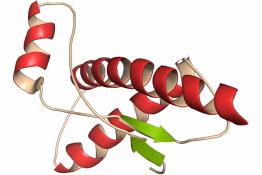We are all mutants
Issue 366 | Page 45 | Published Sep 2017
Description
Mutations can cause genetic diseases and the vast majority of these have no effective treatment. They raise some difficult questions on the boundaries of science and social science. Selective breeding to'improve' the human race (eugenics) is often regarded as a Victorian relic or Nazi fantasy. Yet, three fetuses with Down syndrome are aborted each day in the UK. Recent research suggests that the average human has around 60 mutations in their DNA, it seems that we are all mutants. A better understanding of the science will help us make better decisions about these difficult issues.
More from this issue
Traditionally we consider infection to arise from viruses, bacteria and parasites. Prions are infectious proteins without any nucleic acids, and...
Matter can be described and explained in a number of ways, using models of increasing complexity depending on the intended audience. Under the...
This article explores the use of pre-recorded video mini-lectures to support and enhance traditional face-to-face lectures for undergraduate...




